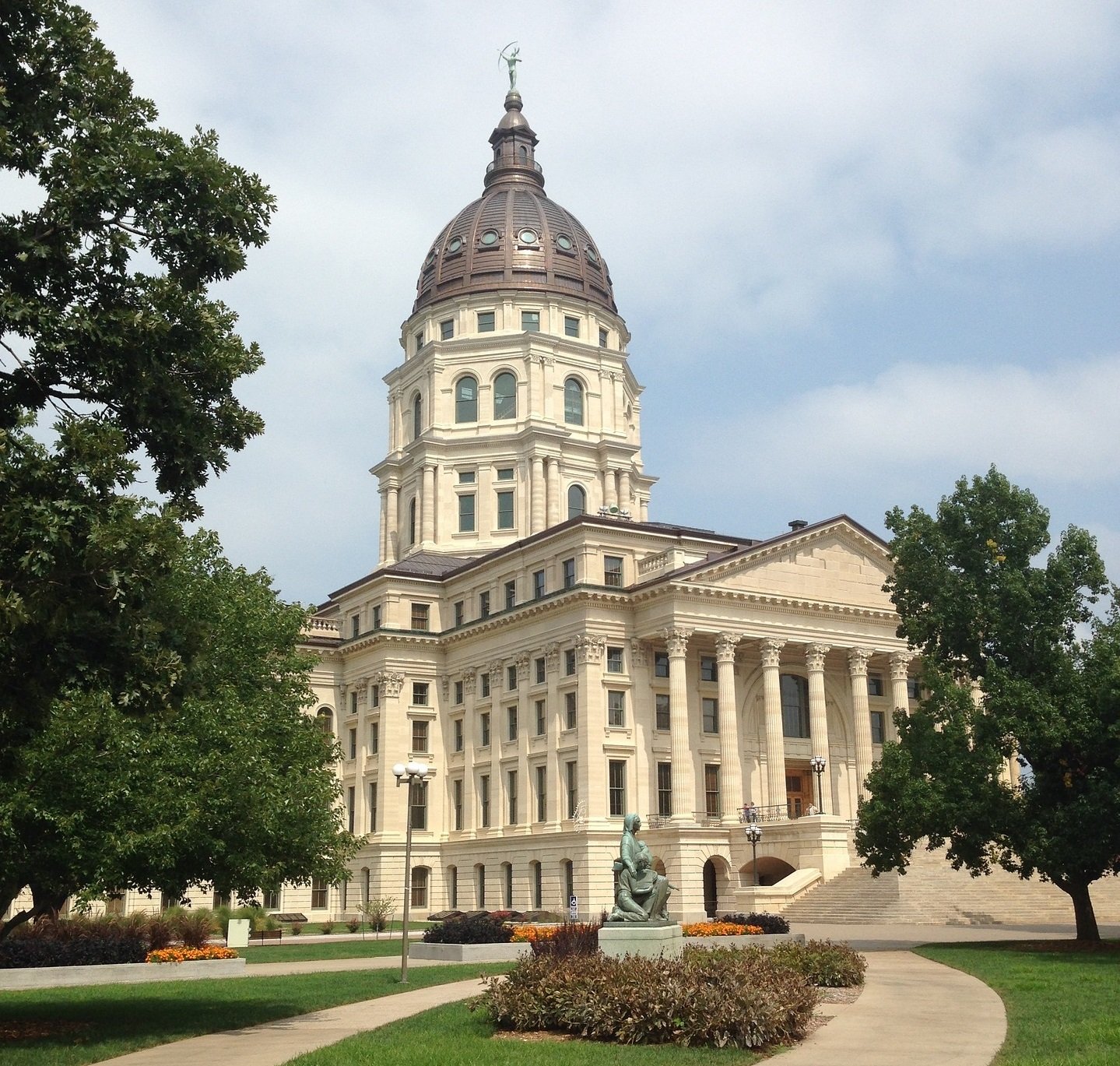(CN) — The Kansas Supreme Court on Friday concluded that a 2021 state law that makes it a felony to impersonate an election official is overbroad because it criminalizes "honest speech" that can cause occasional misunderstanding on the part of the listener.
The court issued a split decision on challenges by the League of Women Voters and other voting advocacy groups to three election laws that the state Senate had passed over the veto of Governor Laura Kelly, a Democrat.
The state's top court reversed a trial judge who had denied the league's bid for a temporary injunction against the false representation statute, finding that the lower court had been wrong to conclude that the plaintiffs were unlikely to succeed on the merits of their claim that the law is "constitutionally infirm."
It's the second time that the Kansas Supreme Court addressed the law that makes it a crime to engage in conduct that gives the appearance of being an election official or that would cause another person to believe that one is an election official.
In December, without ruling on the merits of the advocacy groups' claim, the court overturned a 2022 appellate court finding that the organizations didn't have standing to pursue their challenge of the statute because they don't engage in deceptive practices and didn't face a credible threat of prosecution.
"As before, we discern from the plain language used by the Legislature that it included no intent to misrepresent or deceive requirement in the statute," Justice Caleb Stegall wrote for the majority in Friday's opinion. "As such, it sweeps up protected speech in its net."
According to the court, past innocent acts by League of Women Voters have caused people to mistakenly believe that their personnel are election officials despite the league's efforts to avoid that confusion.
The court returned the league's bid for a temporary injunction to the lower court with instructions to analyze it anew in light of today's opinion.
The majority wasn't entirely persuaded by the league's challenge to the two other election laws, which were part of the same 2021 Senate bill and which the league claims infringes on the right to vote.
One of these laws prohibits election officers from counting advance ballots that do not have a signature or that have a signature that does not match the signature on file unless the voter corrects the deficiency. The other makes it a crime to deliver more than 10 advance ballots on behalf of other voters.
With respect to the signature verification requirement, the court agreed in part with the trial judge who had dismissed the league's claim. The requirement, according to the opinion, is nothing beyond a reasonable effort by lawmakers to provide "proper proofs" of the right to be a qualified voter.
"It does not impose a new qualification on the right to suffrage because its burdens are reasonably related to the Legislature's duty and prerogative to provide proper proofs," Stegall said. "As such, the regulation is not an extra-constitutional "abuse" of the Legislature's authority to provide for proper proofs and in these circumstances courts may not interfere."
The court nevertheless allowed the voting advocacy groups an opportunity to proceed before the lower on their argument that the law's provisions can't be enforced in a manner that isn't arbitrary and in violation of voters' equal protection and due process rights.
According to the league, the statute doesn't explicitly require training on signature matching, doesn't contain any standards for determining what constitutes a mismatch, and lacks a standard for notice and the opportunity to cure defects.
Regarding the prohibition on delivering more than 10 advance ballots for other voters, the court rejected the advocacy groups argument that it amounted to a new qualification on the right to be an elector.
Three of the court's seven judges dissented in part with the majority's opinion.
Justice Eric Rosen disagreed that the signature verification requirement and the restriction on collecting ballots weren't new restrictions on the right to vote.
As for the ballot collection restriction, Rosen said, the League of Women Voters had presented facts that it threatens to cut off voting access for many qualified voters, including voters in western Kansas, where mailboxes are often centrally located in communities far away from individual homes, and Native voters living on tribal lands who may have to travel for hours on unpaved roads to access mail services or election offices.
"The plaintiffs have pleaded facts sufficient to state a claim that the ballot collection restriction impairs the right to majority rule through the vote," Rosen said. "I would reverse the district court's dismissal of this claim."
Martha Pint, president of the League of Women Voters of Kansas, said in a statement Friday that today's decision confirms the law's false representation provision "is likely unconstitutional."
"For three years now, Kansas League of Women Voters volunteers have been forced to severely limit their assistance of voters due to this ambiguous and threatening law," Pint said. "The League’s critical voter assistance work is not a crime, and we are confident this provision will be quickly blocked when the case returns to the district court."
Subscribe to Closing Arguments
Sign up for new weekly newsletter Closing Arguments to get the latest about ongoing trials, major litigation and hot cases and rulings in courthouses around the U.S. and the world.









